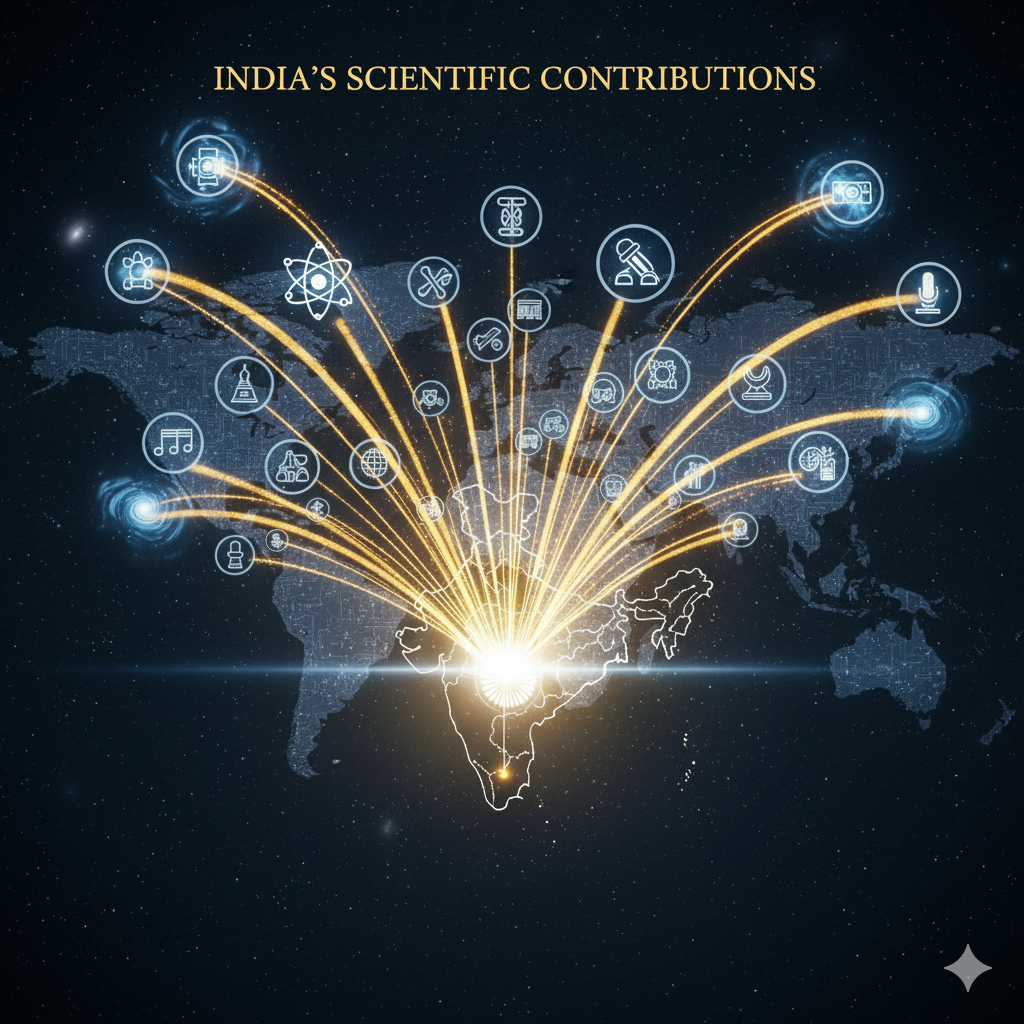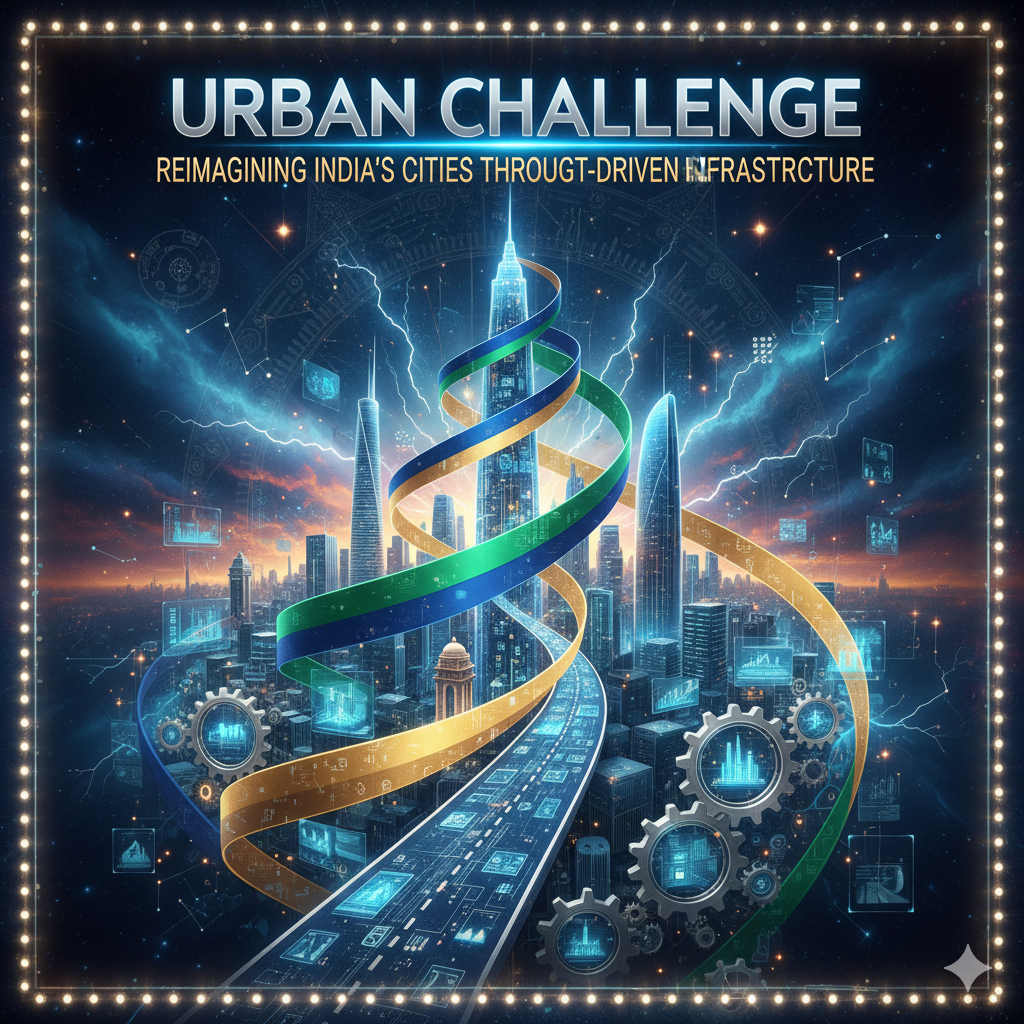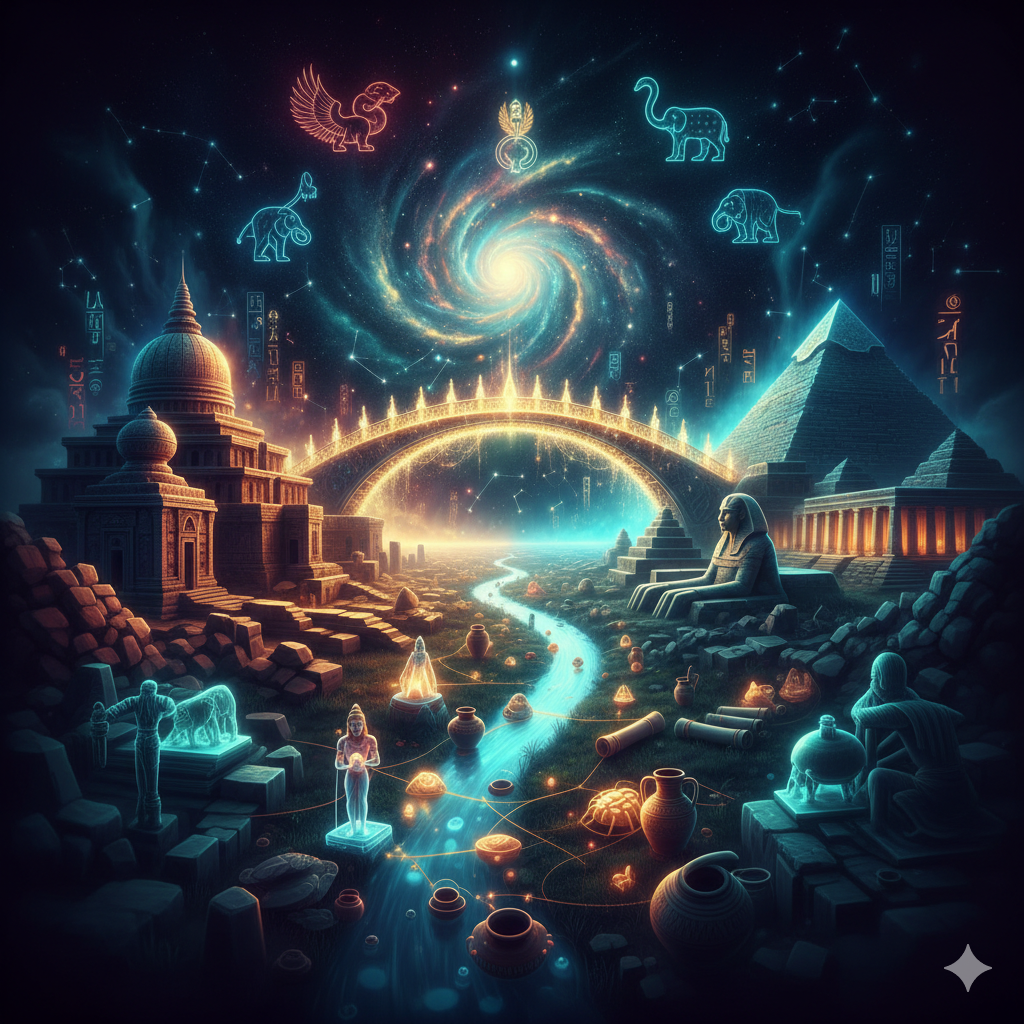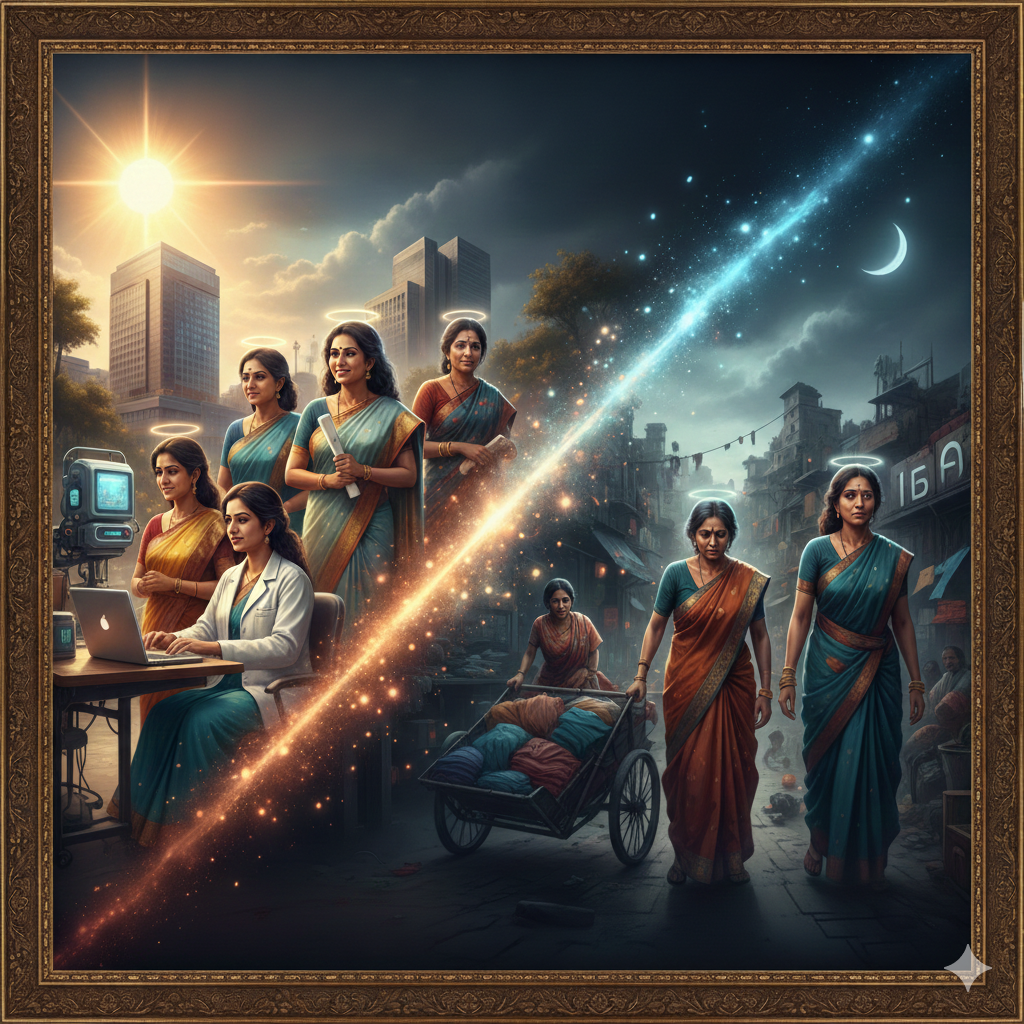Introduction
India has always been recognized as a land of wisdom, innovation, and holistic knowledge. The concept of Vishwaguru (teacher to the world) is deeply rooted in Indian civilization, where knowledge was never confined to material gains but extended toward the betterment of humanity and the universe. India’s scientific contributions span across millennia — from the ancient advancements in mathematics, astronomy, medicine, metallurgy, and architecture to the modern achievements in space exploration, nuclear science, biotechnology, and information technology.
This journey of innovation represents not only India’s cultural and intellectual strength but also its ability to integrate tradition with modernity. Today, as India emerges as a global leader in science and technology, it aspires to reclaim its identity as Vishwaguru — guiding the world with knowledge, ethics, and innovation.
Ancient India: The Foundation of Global Knowledge
1. Mathematics and Numerals
One of India’s most profound contributions to world knowledge is mathematics. Ancient Indian mathematicians laid the foundations of many concepts that continue to shape global sciences today.
- The Concept of Zero: Aryabhata and Brahmagupta revolutionized mathematics by formally introducing zero as both a numeral and a concept. This discovery changed the way calculations and numerical systems were structured worldwide.
- Decimal System: Indian mathematicians pioneered the base-10 numeral system, which was later transmitted to the West through Arab scholars. Today, it forms the backbone of modern computing and scientific calculations.
- Algebra and Geometry: Brahmagupta’s work in algebra, especially his rules for solving quadratic equations, and Baudhayana’s geometric theorems (precursors to the Pythagorean theorem) reveal India’s depth of mathematical exploration.
2. Astronomy
Astronomy in ancient India was a sophisticated science that combined mathematical calculations with deep observations.
- Aryabhata (5th century CE) proposed that the Earth rotates on its axis, centuries before European scientists.
- Varāhamihira (6th century CE) made significant contributions to planetary motions, eclipses, and astrology.
- Observatories in Ujjain, Jaipur, and Varanasi demonstrate the high level of precision Indian astronomers had achieved.
3. Medicine and Ayurveda
India’s traditional medical system, Ayurveda, is one of the oldest holistic healthcare systems in the world.
- Charaka Samhita and Sushruta Samhita are foundational texts. Sushruta is often called the “Father of Surgery,” describing over 300 surgical procedures and 120 surgical instruments.
- Ancient Indian medicine emphasized preventive healthcare, diet, yoga, and meditation, which today resonate with modern wellness practices.
- Concepts like vaccination and immunity building were known in India long before Western medicine adopted them.
4. Metallurgy and Engineering
India excelled in metallurgy, crafting techniques that baffled the world.
- The Iron Pillar of Delhi, built in the 4th century CE, still resists corrosion, demonstrating India’s advanced metallurgical knowledge.
- Zinc extraction and distillation techniques were perfected in India before spreading to other civilizations.
- Indian temple architecture, with precision stone cutting and earthquake-resistant designs, reflects advanced engineering skills.
5. Environmental Knowledge
Indian civilization was deeply eco-conscious. Ancient texts like the Vedas emphasized harmony with nature. Practices such as rainwater harvesting, step wells, and organic farming show that sustainable science was an integral part of Indian life.
Medieval India: Continuity and Knowledge Exchange
During the medieval period, India continued to influence global sciences while also engaging in cultural exchanges.
- Mathematics and Astronomy: Indian works were translated into Arabic, influencing scholars in Baghdad’s House of Wisdom and eventually fueling the European Renaissance.
- Medical Knowledge: Ayurvedic texts and Indian materia medica influenced Unani medicine.
- Technological Innovations: India was known for advanced shipbuilding, textile technology (cotton and muslin), and agricultural tools.
- Universities like Nalanda and Takshashila remained hubs of global education, attracting scholars from Asia, the Middle East, and Europe.
Colonial Period: Suppression and Resilience
The colonial era saw India’s knowledge systems disrupted and devalued. British policies often undermined indigenous sciences, branding them as inferior compared to Western systems. However, India’s spirit of scientific inquiry persisted.
- Reformers and scholars like Jagadish Chandra Bose, who pioneered research in plant physiology and radio science, and Prafulla Chandra Ray, who worked in chemistry, showed resilience despite colonial constraints.
- Institutions such as the Indian Association for the Cultivation of Science (1876) laid the foundation for modern Indian research.
- The freedom struggle itself had a scientific dimension, with leaders emphasizing self-reliance in technology, industry, and education.
Modern India: Resurgence in Science and Technology
1. Post-Independence Vision
After independence, India recognized that scientific progress was essential for nation-building. Under leaders like Jawaharlal Nehru, the country adopted a vision of scientific temper and established institutions such as:
- Indian Institutes of Technology (IITs)
- Council of Scientific and Industrial Research (CSIR)
- Indian Space Research Organisation (ISRO)
- Atomic Energy Commission
These institutions nurtured scientific talent and set the stage for India’s global presence in innovation.
2. Space Technology: ISRO’s Global Impact
India’s space program is one of the best examples of innovation with limited resources.
- Aryabhata (1975) was India’s first satellite.
- Chandrayaan Missions demonstrated India’s lunar exploration capabilities, with Chandrayaan-3 (2023) making India the first nation to land near the Moon’s south pole.
- Mangalyaan (Mars Orbiter Mission, 2013) made India the first Asian nation to reach Mars and the first in the world to do so in its maiden attempt.
- ISRO’s cost-effective models of space exploration are admired globally, making India a key partner in international space diplomacy.
3. Nuclear and Energy Research
India has developed strong expertise in nuclear technology, focusing on peaceful uses for energy security. Simultaneously, India is a leader in renewable energy adoption, especially solar power, under missions like the International Solar Alliance (ISA).
4. Information Technology and Digital India
India is now globally recognized as the IT hub of the world. The rise of companies like Infosys, TCS, and Wipro, alongside startups in AI, blockchain, and fintech, reflects India’s technological dynamism.
- The Digital India Mission has transformed governance, ensuring access to digital services even in rural areas.
- India has also become a global leader in cybersecurity, digital payments (UPI), and AI-driven governance.
5. Biotechnology and Healthcare
India has made major contributions in biotechnology, pharmaceuticals, and medical research.
- The country is known as the “Pharmacy of the World,” supplying affordable medicines and vaccines globally.
- During the COVID-19 pandemic, India’s Vaccine Maitri program distributed vaccines to more than 100 nations, reaffirming its role as Vishwaguru in healthcare.
6. Indigenous Innovation and Startups
India’s startup ecosystem has emerged as the third-largest in the world, with innovations spanning agritech, edtech, fintech, clean energy, and space startups. The spirit of Jugaad innovation reflects India’s ability to create cost-effective, scalable solutions.
India as Vishwaguru of Innovation
India’s journey toward becoming Vishwaguru is not merely about technological breakthroughs but about integrating ethics, sustainability, and inclusivity with science.
- Ethical Science: Ancient Indian philosophy linked science with dharma (duty) and societal welfare. India’s emphasis on technology for peace and development echoes this tradition.
- Sustainability: With its leadership in renewable energy, environmental protection, and Ayurveda-based healthcare, India promotes sustainable innovation.
- Global Collaboration: Initiatives like ISA, space diplomacy, digital partnerships, and vaccine diplomacy highlight India’s role in guiding global innovation.
Challenges and the Road Ahead
Despite progress, India faces challenges that must be addressed to fully realize its vision as Vishwaguru:
- Bridging the Education-Research Gap – More investment in research and development (R&D) is needed.
- Encouraging Indigenous Innovations – Reducing dependency on imports in critical technologies.
- Sustainability vs. Industrial Growth – Balancing economic growth with environmental responsibility.
- Global Recognition of Ancient Knowledge – Reviving India’s traditional sciences while integrating them with modern innovations.
Conclusion
India’s scientific journey — from the invention of zero and Ayurveda to space exploration and digital governance — reflects its timeless role as a guide for humanity. The vision of India as Vishwaguru of innovation is not about dominance but about leading with wisdom, ethics, and inclusivity.
By harmonizing ancient wisdom with cutting-edge technology, India can continue to inspire the world. As global challenges like climate change, pandemics, and technological disruptions reshape the 21st century, India’s balanced approach to science and innovation will be crucial in shaping a more sustainable and equitable future.
India’s path as Vishwaguru is thus a journey of knowledge, compassion, and innovation — a legacy that connects the past, present, and future in service of humanity.




